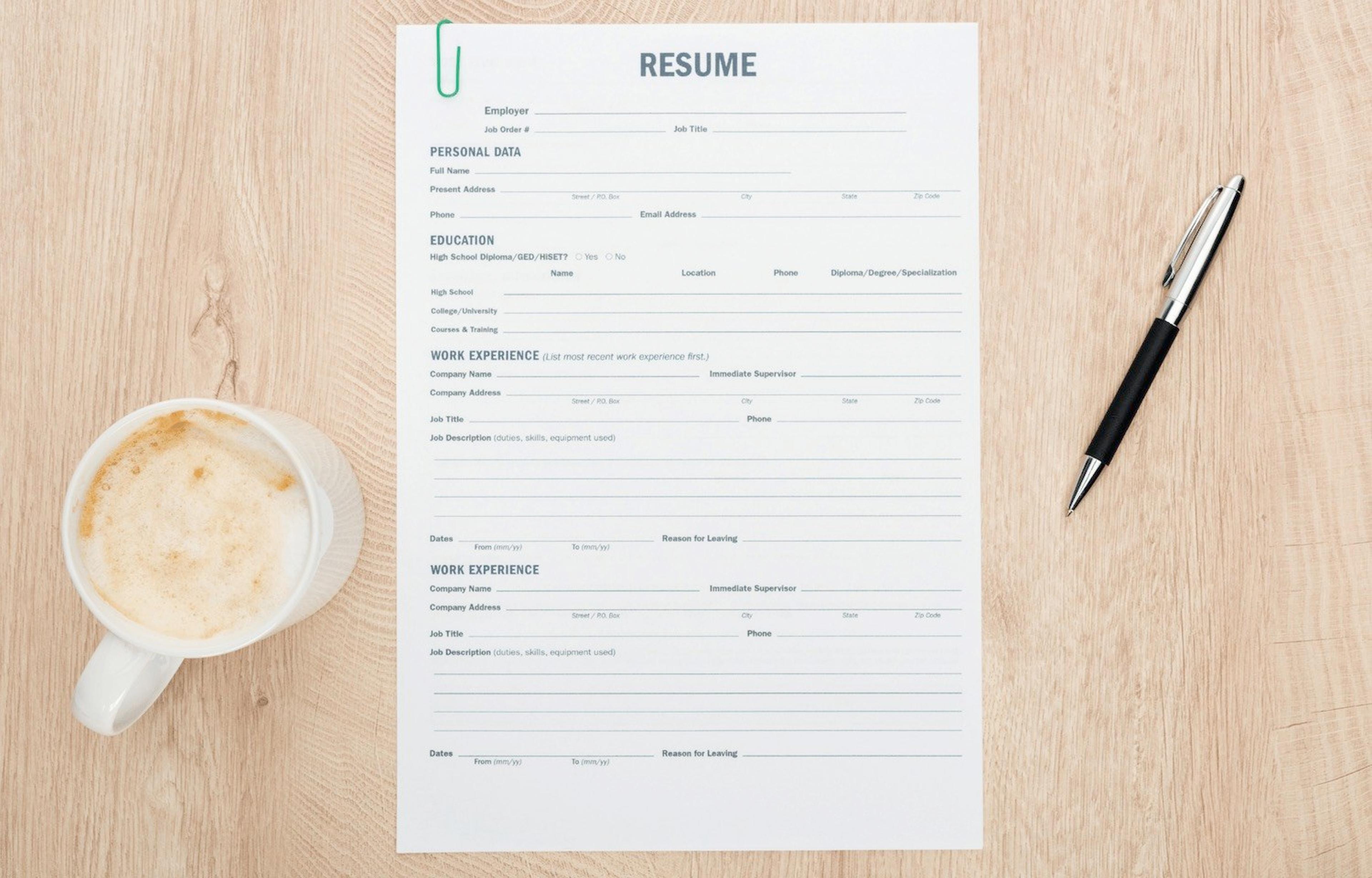How to Get Started on Your Letters of Recommendation for Graduate School
Discover the essential steps for obtaining strong letters of recommendation for your grad school application, including tips on crafting a persuasive request and maintaining strong relationships with your recommenders.

By Debby C.
Former Stanford Graduate Admissions | Master's Admissions Expert
Posted June 13, 2025

Join a free event
Learn from top coaches and industry experts in live, interactive sessions you can join for free.
To apply to graduate school, applicants are typically required to provide three letters of recommendation. These letters should come from individuals who can speak to the applicant's academic abilities and achievements, as well as their character and personality traits. In addition, letters of recommendation should come from people who are experts in the applicant’s intended area of study, such as professors, research advisors, academic mentors, and/or work supervisors.
For example, a strong letter of recommendation will include specific details to provide admission committee members with examples of the applicant's strengths and abilities. This can be done by including anecdotes on the applicant's past achievements, such as how they excelled on a project or demonstrated leadership skills in a particular situation. By highlighting these specific instances, the recommender can effectively illustrate the applicant's potential for success to admission committee members.
Many applicants find this step in the application process particularly challenging, especially when they're unsure about who to ask.
Below are some tips to help you approach your professors and begin the conversation about letters of recommendation. If you’ve graduated from college and have not kept in touch with professors, these tips may also be helpful as you work with your supervisor, mentor, or someone you intend to ask for a letter of recommendation.
- Attend classes or scheduled meetings regularly and be on time. Professors/supervisors often notice and appreciate people who try to be present and punctual.
- Participate in discussions and ask questions. This shows that you are engaged and interested in the material, and it can also help to clarify concepts that you may need help with.
- Take advantage of office hours. Office hours are a great time to ask questions, seek feedback, or chat about your interests and goals with your professor or supervisor.
- Show initiative and interest in the subject. This can be done by attending extra lectures, joining clubs or groups related to the subject, or doing research on your own. Discuss these activities with your professor or supervisor to share your progress and plans.
- Lastly, remember that professors and supervisors are busy and might have many students/employees, so be mindful of their time and give them adequate notice when you ask them to write a letter of recommendation for you.
Finally, remember to be thoughtful about whom to ask for letters of recommendation. When asking for a letter of recommendation, try to gauge how enthusiastic the person is about writing a letter for you. A halfhearted or lukewarm letter is often worse than no letter at all.
If you have questions about the graduate school admissions process, feel free to reach out for a free 30-minute intro call on my Leland coaching profile. We will discuss your individual circumstances during our meeting and brainstorm ways to strengthen your application.

Written by Debby
5.0
(31)
With ten years of experience in graduate admissions at Stanford University's School of Engineering and School of Education, I can provide valuable insight into the application and review process. I am here to address your concerns and answer your questions about applying to graduate school. Since 2013, I have worked as a professional graduate admission consultant and coach, specializing in helping students navigate the application process for programs in the United States, Canada, and many other countries worldwide. My travels have allowed me to connect with prospective students and their families, giving me a deeper understanding of the diverse cultural expectations surrounding advanced degrees. I coach to share my knowledge and experience with students globally, not to "game" the system, but to help applicants present the most accurate and compelling representation of their qualifications to admissions committees. My coaching services offer honest and personalized support as you prepare to apply to graduate school. I do not screen clients based on their academic records; in fact, I excel in working with individuals who may lack confidence in their potential for graduate studies. Everyone has a unique story to tell, and my mission is to help you showcase your strengths, even if you don’t yet recognize them. One of my greatest strengths is helping clients envision what is possible and collaborating with them to turn their dreams into reality. My past client results include (for a complete list of my admissions results, click here: https://www.wisegradadmissions.com/results) STANFORD UNIVERSITY Civil & Environmental Engineering Computer Science Electrical Engineering Management Science & Engineering Mechanical Engineering International Education Policy Learning, Design & Technology Policy, Organization & Leadership HARVARD UNIVERSITY Data Science Education Leadership. Organization & Entrepreneurship Human Development & Education Learning Design, Innovation, and Technology Prevention Science & Practice UNIVERSITY of PENNSYLVANIA Chemical Engineering Computer Science Electrical Engineering Materials Science & Engineering Mechanical Engineering Systems Engineering Education & Psychology Behavioral Economics Counseling & Mental Health Services Human Development International Education Development Learning Sciences and Technologies Social Psychology WHARTON MBA (joint program with Computer Engineering Management Technology) CORNELL UNIVERSITY Electrical & Computer engineering Materials Engineering Mechanical Engineering Operations Research & Information Engineering Statistics Agricultural Economics Food Science Financial Mathematics Management JOHNS HOPKINS UNIVERSITY Applied Physics Computer Science Electrical & Computer Engineering Robotics Mental Health Counseling Public Health & Epidemiology Public Policy, Global Affairs & International Relations Financial Mathematics COLUMBIA UNIVERSITY Computer Science Electrical Engineering Environmental Engineering Management Science & Engineering Materials Engineering Mechanical Engineering Operations Research Agricultural Economics Biostatistics Statistics Financial Mathematics Applied Behavior Analysis Counseling Psychology Developmental Psychology Instructional Technology & Media International Comparative Education International Studies MSW School Psychology UNIVERSITY OF CHICAGO MBA Public Policy/Global Affairs MSW Psychology GEORGETOWN Public Policy/Global Affairs Asian Studies NYU Computer Science Data Science Electrical Engineering Financial Engineering Biostatistics Food Studies Physics Behavioral Economics Counseling Human Development & Social Interaction MSW UNIVERSITY OF MICHIGAN Aero/Astro Engineering Chemical Engineering Computer Science Electrical Engineering Environmental Engineering Materials Science & Engineering Mechanical Engineering Biostatistics Survey Methodology Financial Mathematics Public Policy & International Studies Japanese Studies MSW CARNEGIE MELLON UNIVERSITY Chemical Engineering Computer Science Electric and Computer Engineering Environmental Engineering HCI Materials Science & Engineering Mechanical Engineering Statistical Practice Computational Finance UNIVERSITY OF WASHINGTON Computer Science Chemical Engineering Electrical Engineering Applied Physics Biostatistics Education/Psychology Learning Sciences and Human Development MSW
Debby has helped clients get into organizations like:
Browse hundreds of expert coaches
Leland coaches have helped thousands of people achieve their goals. A dedicated mentor can make all the difference.



















